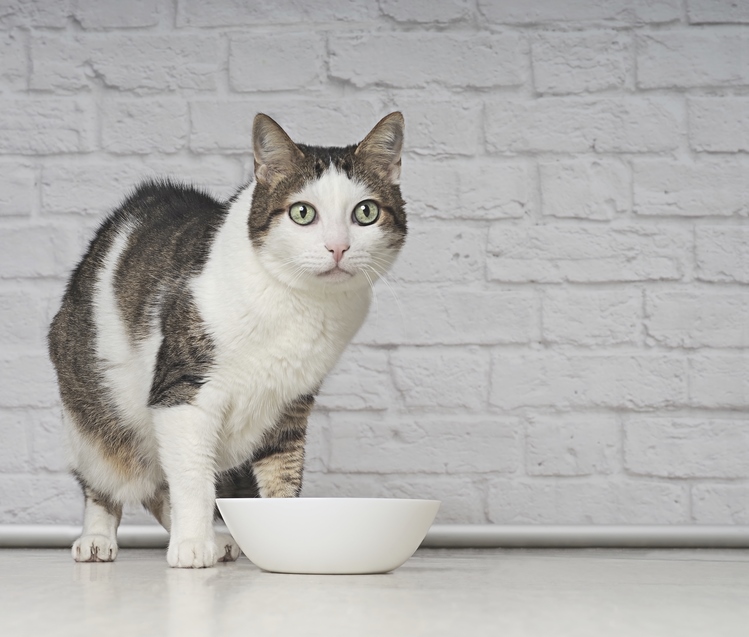|
Dehydration in Cats: Tips for Increasing Water Consumption Is Your Cat Drinking Enough?
Dehydration is a Serious Health Risk in Cats
By Susan Blake Davis, Pet Nutritionist
Did you know that many cats avoid water and can become seriously dehydrated? When cats aren’t getting enough moisture in their diet or drinking enough water, dehydration can occur. Water is essential for cats to help them digest food and eliminate waste. When cats are dehydrated, they have an increased rate of developing urinary tract infections or forming urinary crystals and they can also become constipated. Senior cats, especially, require proper hydration to help protect their kidney function. Long-term dehydration can inevitably affect the kidneys. A dehydrated cat may appear lethargic with poor skin elasticity. While the current temperature, activity level and type of food all have an effect on a cat’s hydration, a bout of vomiting or diarrhea can cause a cat to become dehydrated quickly.
Cats maintain proper hydration either through moisture in their food or through drinking water. Some cats can be very particular about the water they drink, the water bowl and the taste of the water. This can result in the cat not drinking enough. Listed below are suggestions on how you can increase your cat’s water intake.
How to Increase Your Cat’s Water Consumption
·
Incorporate high moisture canned or raw
food into your cat’s diet,
keep dry food to a minimum · Use an automatic water fountain as many cats prefer running water · Keep fresh clean water available and change the water frequently · Try using different types of water bowls
·
Use a variety of water such as bottled or
filtered to determine your
cat’s preference
Keeping your cat hydrated will help ensure your cat stays happy and healthy. If you suspect your cat may be dehydrated, be sure to seek out the advice of your veterinarian. |
